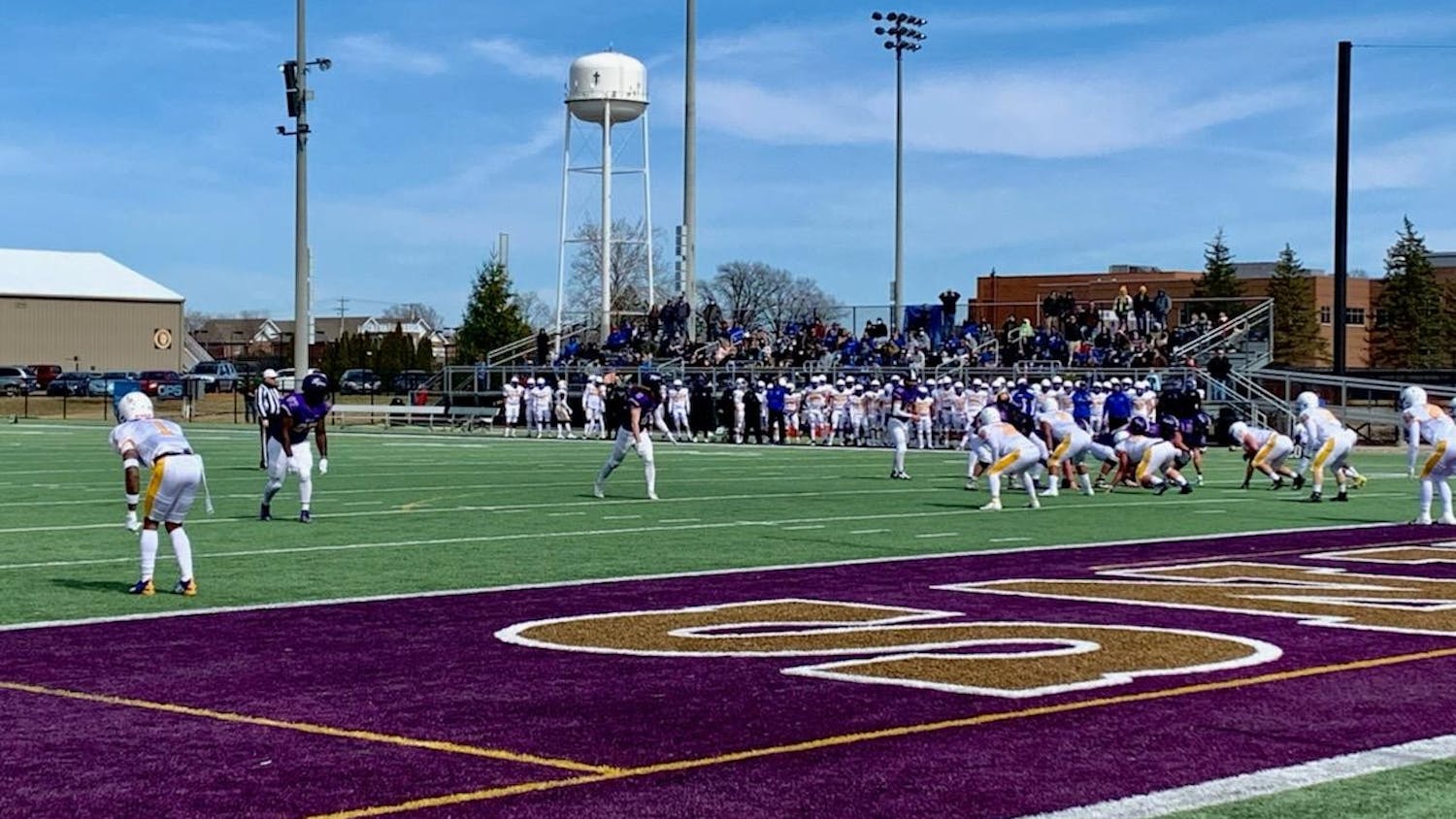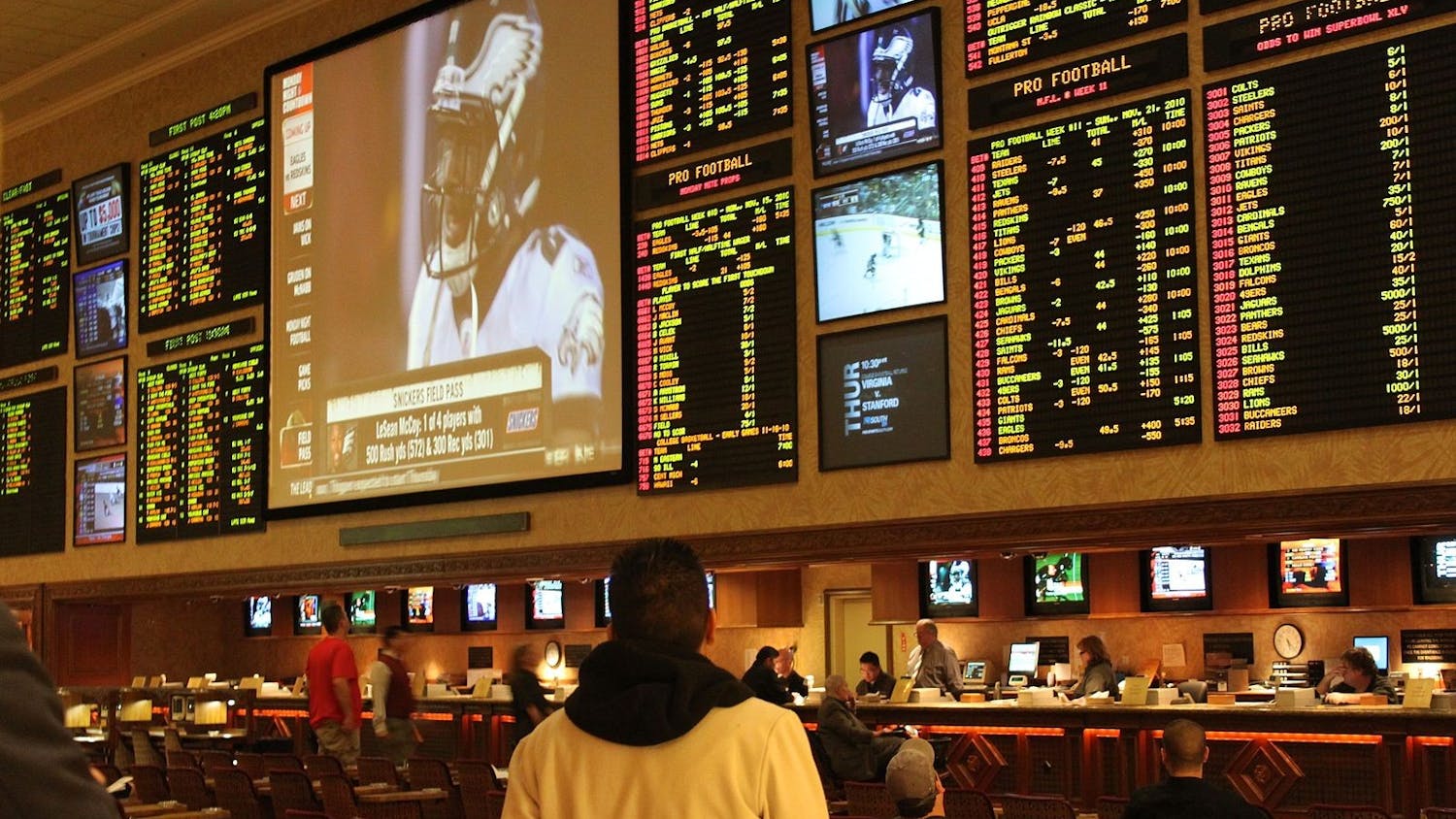Last weekend, in Game One of the American League Championship Series between the Houston Astros and Boston Red Sox, an ad flashed across the FOX broadcast during a crucial AB featuring Houston’s Carlos Correa. The ad, sponsored by FOX Bet, displayed how much a gambler would win if they placed 100 dollars on Correa to hit a home run in that game.
FOX has been running these ads throughout the postseason, and it’s become commonplace to find similar ads throughout sporting events, not just in commercial breaks.
I’m not here to announce that sports betting exists. If you follow sports, you already know that. I’m also not here to announce that gambling on sports is good or bad — that’s another conversation and one that should probably be had after a lengthy look at Scripture and personal examination through prayer.
Instead, I’m here to criticize the way gambling has infiltrated every and any corner of sports discourse.
Historically, gambling has always provided context when discussing sports. Even before it became a legal venture in Indiana and other states, “lines” for particular sporting events were a part of the discourse. They provided information from those who know the most (Sports Books) about matchups and their projected margins.
But, as we’ve moved into an era where almost anyone can bet on sports, we’ve also seen a drastic shift in what people want to talk about when it comes to them.
And it’s not surprising.
Last week, figures released from the New Jersey Division of Gaming Enforcement revealed that New Jersey casinos and racetracks took $1.01 billion on sports wagers in September, the first state to ever eclipse one billion. That number alone is impressive, before realizing it doesn’t include the more popular avenue for betting on sports — internet gambling.
An article from CNBC in September estimated that 19.5 million people will wager money online this NFL season.
But, it isn’t just the professional and die-hard gamblers, it’s the everyday sports fan. The one that works the 9 a.m. to 5 p.m. and consumes sports as a hobby.
“The most popular way to bet remains casually with friends, with 21.7 million expected to do so this season, an increase of 31% year over year,” the CNBC article reads.
Most of the new content, from talk shows to articles and advertisements, is centered around gambling. Until recently, the major American sports leagues forbid gambling advertisements; now, most have partnerships with sportsbooks. The NFL, for example, has partnerships with seven sportsbooks.
Our favorite sports writers and sports personalities now bet. They give us their best “plays” and those who join in, watch with them as they suffer the ups and downs of gambling.
It’s frankly hard to find sports content now that doesn’t connect with gambling, and it’s drastically altered the casual sports fan’s conversations. Most programming around sports now at least has a gambling segment, if not an entire show dedicated to it.
An article from SportsHandle, a publication centered on sports betting regulation in the U.S., sums up the gambling climate in sports perfectly:
“Sports betting may now be too big and too legal to ignore, but it’s not for everyone — maybe not even a (sport) program’s current audience, some of whom may prefer to tune out, especially when the sports talk is already sandwiched by sportsbook ads,” Brett Smiley of SportsHandle writes.
I’m not here to condemn and I’m certainly not here to provide my opinion on sports betting and its ethics. But, when I can’t watch a game on TV without the broadcasters reading an in-game advertisement about the live odds, or listen to a podcast without the hosts discussing their favorite plays, it is eye-opening.
The conversation around sports is changing, and it could be for good.




